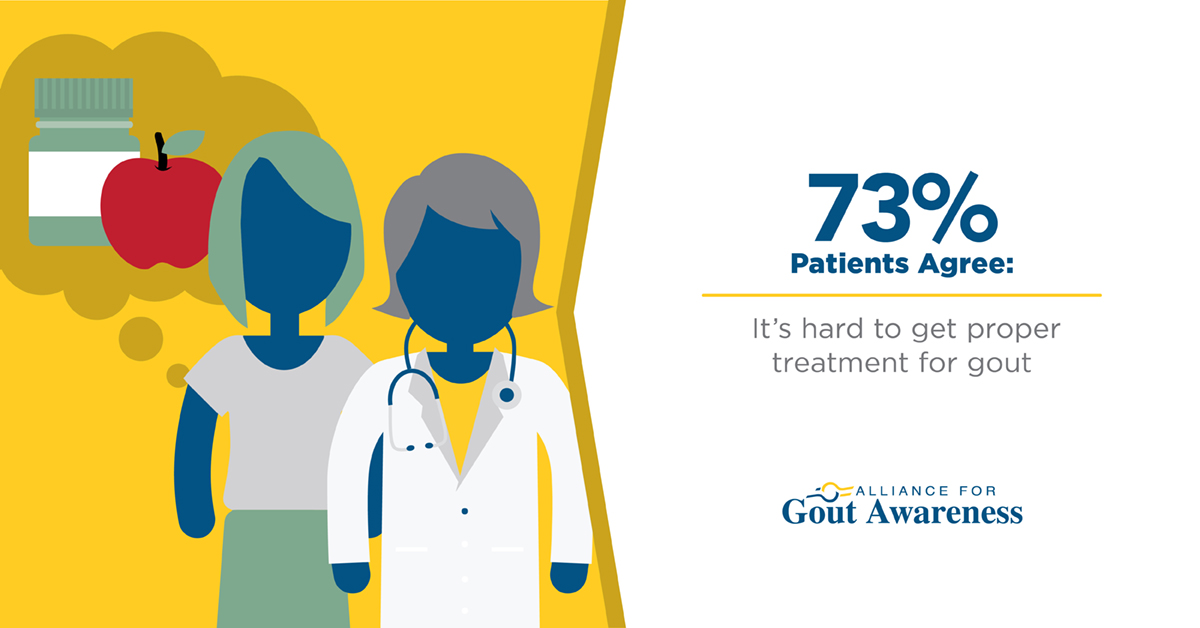New survey data reveals that stigma, lack of awareness and misinformation may hinder treatment for gout, a chronic disease characterized by sudden and excruciating attacks. The national poll, conducted by Alliance for Gout Awareness, surveyed 169 gout patients across the country about their experiences with the disease and their beliefs about treatment.
While most respondents acknowledged gout as a serious disease (97%) that could lead to other health problems (90%), they nevertheless reported feelings of stigma and embarrassment, agreeing that:
- People with gout are often too embarrassed to talk about the disease (52%)
- People look down on those with gout (40%).
That stigma could stem from lack of public understanding of gout. Patients overwhelmingly reported that “most people don’t know gout is a form of arthritis” (93%).
But it’s not just outsiders who lack understanding. Patients themselves continue to harbor misconceptions about the disease. For instance, the poll revealed that nearly half (46%) of patients agree that eating too much unhealthy food and drinking alcohol in excess causes gout. While diet can play a role in disease development, genetics also factor in. Patients may have a family history that predisposes them to gout. And they shouldn’t feel helpless if changes in diet alone don’t affect their gout the way they’d hoped.
Does self-blame lead patients to self-treat? Maybe. One in four gout patients, the survey reveals, mistakenly believe that natural remedies like cherry juice and apple cider vinegar can treat their gout. Meanwhile, 27 percent have the misconception that the chronic disease can be cured.

Exacerbating treatment myths, a majority of patients reported that:
- It’s hard to get proper treatment for gout (73%)
These results demonstrate the need for expanded education for both gout patients and the public, the Alliance for Gout Awareness concludes. Heightening public awareness can help reduce the unfair stigma that people with gout experience. And empowering patients with more – and more accurate – information about gout can encourage them to seek and maintain the treatment they need.
Read the Alliance for Gout Awareness’ full survey results to learn more.

